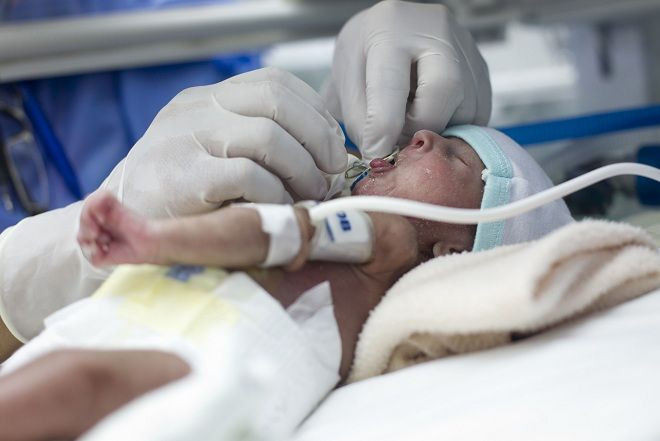Repeat Abortions Increase Risks for Future Pregnancies

The more abortions a woman has had before her first child, the higher her risk of life-threatening problems for future pregnancies, new findings suggest.
Researchers found that women who have had three or more abortions were three times more likely to have a very premature baby, born before 28 weeks in the womb and with a very low birth weight compared to women who've had no abortions.
Women who've had two abortions before their first child also had a greater chance of giving birth prematurely, according to the study published in the journal Human Reproduction.
However, researchers noted that the overall risk was still low.
Preemies, particularly babies who are born prematurely by three months or more, often need special hospital care to ensure their survival, and past studies also found that being born prematurely increases the risk of infection, hypothermia and death.
The study involved 300,858 Finnish mothers. Out of all the mothers in the study, 31,083 had one abortion between 1996 and 2008, 4,417 had two, and 942 had three or more abortions before giving birth to their first child.
Researchers found that women who had three or more abortion were 35 percent more likely to deliver a baby prematurely and more than twice as likely to having a baby with very low birth weight, compared to women who did not have any abortions.
While results from the study also revealed that multiple abortions slightly increased the risk of a baby's death around the time of birth, researchers stressed that the numbers for this finding was very low, roughly five per 1,000 babies, and could be confounded by other factors like smoking and socioeconomic position.
"Our results suggest that induced abortions before the first birth, particularly three or more abortions, are associated with a marginally increased risk during the first birth," Lead researcher Dr. Reija Klemetti, from the National Institute for Health and Welfare in Helsinki, Finland, said in a statement.
However, she noted that the increased risk is "very small, particularly after only one or even two abortions, and women should not be alarmed by our findings."
"Furthermore, this is an observational study and, however large and well-controlled, it only shows there is a link between abortion and some adverse birth outcomes - it cannot prove that abortions are the cause," she added.
She urged young women to be told of the possible harms linked to repeat abortions.
"We suggest that the potential for increased risks for subsequent births should be included in sex education, especially as there are other, good reasons to avoid induced abortions. Health professionals should also be informed about the potential risks of repeat abortions," she concluded.
Published by Medicaldaily.com



























